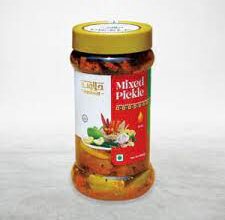What Is It Like To Live With A Dublin Host Family

Living with Dublin Host Families are an excellent way to experience authentic Irish hospitality and immerse yourself in Irish culture. Host families are carefully selected by Dublin-based organizations to ensure that they offer safe, welcoming environments for visitors. Living with a host family typically involves following a daily routine that may include mealtimes, socializing, and exploring the local area. Host families provide comfortable accommodations, which can range from private rooms to shared living spaces, depending on the family’s size and availability. Guests can expect to be served traditional Irish meals and have opportunities to learn more about Irish culture through conversation and activities. Communication and respect are key to building positive relationships with host families, and guests are expected to follow the family’s rules and expectations. Overall, living with a Dublin host family can be an enriching and rewarding experience.
How Do Dublin Host Families Typically Spend Their Days?
Dublin host families typically spend their days like any other family, carrying out daily routines and activities. Some families may work during the day, while others may stay at home. The level of interaction that guests have with host families can vary, depending on the family’s schedule and the guest’s preferences. However, host families often make time to socialize with their guests and share their culture and experiences.
Mealtimes are an important part of Irish culture, and guests can expect to enjoy traditional Irish meals with their host family. Breakfast is typically served in the morning, and may include oatmeal, toast, or a full Irish breakfast with bacon, sausage, eggs, and black pudding. Lunch and dinner may include dishes such as shepherd’s pie, Irish stew, or fish and chips. Host families may also take guests on outings to explore the local area, including popular tourist attractions and cultural events.
During their free time, host families may engage in various activities, such as watching television, playing games, or participating in hobbies. Many Irish families are avid sports fans, and may spend time watching and discussing football, rugby, or other sports. Guests may also have the opportunity to attend local events or festivals, which can provide insight into Irish culture and traditions. Overall, Dublin host families offer guests a unique opportunity to experience life in Ireland and create lasting memories.
What Aspects Of Irish Culture Can I Experience By Living With A Dublin Host Family?
Living with a Dublin host family can offer guests a unique opportunity to experience various aspects of Irish culture. One of the most prominent aspects of Irish culture that guests can experience is the warm hospitality and friendliness for which the Irish are known. Host families are typically welcoming and eager to share their culture and experiences with guests.
Food is another important aspect of Irish culture that guests can experience while living with a host family. Traditional Irish meals such as shepherd’s pie, Irish stew, and fish and chips are popular dishes that guests can enjoy. Host families may also introduce guests to other popular Irish dishes, such as colcannon, boxty, and bangers and mash.
Guests can also learn more about Irish history and traditions by living with a Dublin host family. Many families are proud of their Irish heritage and may share stories and insights about their family history and the country’s rich history. Guests may also have the opportunity to participate in cultural events or festivals, which can provide insight into Irish traditions and customs.
Finally, living with a host family can also provide guests with the opportunity to improve their English language skills. Host families may be willing to help guests practice their language skills by engaging in conversations or offering language lessons. Overall, living with a Dublin host family can offer guests a unique and enriching cultural experience.
What Type Of Accommodations Do Dublin Host Families Typically Provide?
Dublin host families typically provide a range of accommodations to suit different guest needs and preferences. The most common type of accommodation provided by host families is a private bedroom with a shared bathroom. The bedroom may include a bed, desk, and storage space for personal belongings. Some host families may offer guests a private bathroom or an en-suite bathroom attached to their bedroom.
Shared living spaces are another feature of Dublin host family accommodations. Guests can expect to have access to common areas such as the living room, dining room, and kitchen. These areas may be shared with the host family and any other guests who may be staying with them.
Host families may also provide guests with additional amenities such as free Wi-Fi, laundry facilities, and access to a garden or outdoor space. Guests should inquire about any additional amenities that may be available when selecting a host family.
It is important to note that Dublin host families are carefully screened and selected by reputable organizations to ensure that they offer safe and welcoming environments for guests.
What Types Of Traditional Irish Meals And Beverages Can I Expect To Be Served While Living With A Dublin Host Family?
Living with a Dublin host family provides guests with an opportunity to taste a variety of traditional Irish meals and beverages. Breakfast is a staple meal in Irish culture, and guests can expect to enjoy a hearty breakfast each morning. Traditional Irish breakfast often includes eggs, bacon, sausages, black pudding, white pudding, baked beans, mushrooms, and grilled tomatoes. Alternatively, guests may enjoy a bowl of porridge with a selection of toppings such as honey or fresh fruit.
Lunch and dinner meals are also an opportunity to sample traditional Irish dishes such as shepherd’s pie, Irish stew, and fish and chips. Other popular Irish dishes include colcannon, boxty, and bangers and mash. Guests can also expect to be served a variety of bread such as soda bread, brown bread, or potato bread.
In terms of beverages, tea is a staple in Irish culture and is often served throughout the day. Guests may also be offered a cup of coffee or a hot chocolate. For alcoholic beverages, beer is a popular choice in Ireland. And guests can sample various Irish beers such as Guinness or Smithwick’s. Irish whiskey is also a popular spirit in Ireland and guests may have the opportunity to try different brands and styles.
What Are The Expectations For Communication And Interaction With A Dublin Host Family?
Communication and interaction with a Dublin host family is an important aspect of the guest experience. While each host family may have their own communication style and expectations, there are some general guidelines to follow.
Firstly, it is important to establish clear lines of communication with the host family from the beginning. This includes discussing meal times, household rules, and any special needs or requirements that the guest may have. It is also important to communicate any changes in plans or schedules with the host family in a timely manner.
Secondly, guests should aim to engage in regular and respectful communication with the host family. This includes engaging in friendly conversations and showing an interest in the host family’s culture and traditions. Guests should also be mindful of the host family’s privacy and personal space.
Thirdly, guests should be respectful of the host family’s household rules and expectations. This includes being mindful of noise levels, keeping common areas clean and tidy, and respecting the host family’s belongings.
Finally, it is important to maintain a positive and friendly attitude towards the host family. Guests should express gratitude for the hospitality provided by the host family. And show appreciation for the efforts they make to make the guest feel comfortable and welcome.




